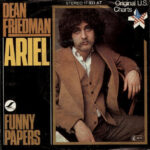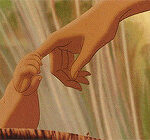Joe Walsh is a name synonymous with rock guitar mastery and unforgettable anthems. While many know him for his iconic riffs and contributions to bands like the Eagles, the story behind Joe Walsh Songs is as captivating as the music itself. This journey, marked by both incredible highs and personal battles, deeply influenced his songwriting and performance, creating a legacy that extends far beyond the stage.
Walsh’s foray into the world of entertainment took an unexpected turn during the filming of The Blues Brothers. As he recounts, “I start the riot in the final scene of The Blues Brothers.” This seemingly impromptu cameo, sparked by friendships with John Belushi and Dan Aykroyd, offered a glimpse into Walsh’s magnetic personality and willingness to embrace the unexpected. He explains how casual hangouts with Belushi in Los Angeles during filming breaks led to his memorable on-screen moment, dancing wildly to “Jailhouse Rock.”
His bond with Belushi went deeper than a chance movie appearance. Their friendship, forged in Chicago, was a whirlwind of rock and roll camaraderie. Walsh recalls, “I met Belushi on the road in Chicago. He came to an Eagles concert. He showed up in my room and didn’t leave for two days.” Belushi’s desire to showcase Chicago’s vibrant scene to Walsh led to escapades, including a memorable incident at a restaurant where their attire initially caused them to be turned away, prompting a rebellious act of spray-painting their jeans. This anecdote highlights the free-spirited nature that permeates many Joe Walsh songs – a blend of humor, defiance, and a rock and roll attitude.
However, the rock and roll lifestyle took a dark turn after the Eagles’ initial disbandment in 1980. Walsh candidly describes a descent into addiction: “When the Eagles stopped in 1980 … I kept going. I didn’t really want to admit it had ended, so I just kept the same mentality and lifestyle.” This period marked a sharp decline, with Walsh admitting that his life became consumed by a dangerous cycle of substance abuse. “The way I wound up was that the only thing that mattered to me was not running out of cocaine. And also vodka. Vodka, cocaine and Camel Light cigarettes. Those three things.”
This harrowing period of addiction significantly impacted his creativity and personal relationships. “Gradually, I stopped writing music and I stopped taking care of myself. I burned bridges. I was not dependable,” Walsh confesses. His struggle paints a stark picture of the destructive nature of addiction, a theme that, while not always explicit, resonates in the raw emotion present in some of his more introspective songs. He describes hitting rock bottom, a time when “Musicians didn’t really care to work with me anymore. I had an ‘I don’t care about anything’ attitude.”
Despite the darkness, Walsh’s story is also one of resilience and recovery. He witnessed the tragic consequences of addiction firsthand, referencing the loss of Keith Moon and Belushi’s own battles. Interestingly, Walsh played a role in Belushi’s attempts at sobriety, revealing, “Belushi, he had gotten sober. And I helped him do it.” This detail underscores Walsh’s capacity for empathy and his own eventual path towards recovery. While the original text doesn’t explicitly detail Walsh’s musical output during his darkest times, understanding this context provides a deeper appreciation for the honesty and vulnerability that underpin many Joe Walsh songs. His journey from rock and roll revelry to personal crisis and ultimately, redemption, is an integral part of the narrative behind his enduring music.


